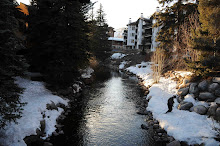He told me, he had a “malady of sorts, something to do with the blood,” he recalled. I studied his documents that he had proffered and found the riot in his blood that had him seeking solace. The riot was a white cell problem; the plasma cells had overtaken the production machinery in his bone marrow. His, was producing a variant of the white cell called “plasma cell” from a renegade template. This wayward production was overtaking the capacity of the other normal cells that were needed for normal daily living. The dysfunctional clone of plasma cells were on a rampage, unwavering and resilient. And so he grew weaker in the flesh but stronger and more focused in the mind as the white cells took over and made him weak from the relative paucity of the red blood cells.
But that was many years ago. We, he and I, had reversed the process and contained the plasma cells from growing in their manic phase and checked their growth and contained them much before their prohibitive limit. He would come periodically and I would pat him on his back after studying his blood under the microscope. We elected to reserve the bone marrow testing only when there was an absolute change in his condition warranting it. The now had recently happened.
He was single, never married and lived quietly in a modest home. I visited with him one day on his invitation, to find a catalogue of literary books and models of schooners, sloops and ketches adorning his living room; a modest small room with sparse furniture, except for the heavy wooden book cases that travelled across the walls into different rooms, filled with books.
The day had come for decisions and he being weak and frail required the “mountain” to come to him, as he called it. We sat awhile quietly, both taking in the ambience. He thanked me for coming and offered me a beautifully constructed model of the HMS Victory as a token of friendship. I declined. He said, I realize my time is short now, but I do have an important piece of work yet to finish. And then in a quiet but audible whisper he said,
“I would spread the cloths under your feet:
But I, being poor, have only my dreams;
I have spread my dreams under your feet;
Tread softly because you tread on my dreams.”
But I, being poor, have only my dreams;
I have spread my dreams under your feet;
Tread softly because you tread on my dreams.”
Perplexed with the choice of the quote, I looked up at him. Had I trampled on his dreams before? had I not done everything based on his wants and needs? He looked at my discomfiture and said, “Thank you doctor, my friend, you have given me comfort and many years of good living. I just want to live for a short while more, till the end of the year to finish a project.” I hurried to alleviate his anxiety and he held up his hand slowly but determinedly. “I know, I know, what you will say, for it is difficult for you to lose a friend as much as it is for me, but promise me comfort for the remainder and nothing more.” I promised.
We had tea that he prepared in a teapot, letting the tealeaves simmer in the heated water bubbles, lending the entire agency the color of rust and the aroma of far away places. He poured the tea with a slight tremor in his right hand. He limped slowly across the room and would not take any assist from me. He sat down finally a little shy of half his energy, but his eyes remained alert and piercing, shaded below the overhang of his thick eyebrows. He looked steadfastly at nothing in particular, staring at the books in the bookcases. We sat sipping from our respective cups in silence until he broke with his voice,
“From this day to the ending of the world,
But we in it shall be remember'd;
We few, we happy few, we band of brothers;
For he to-day that sheds his blood with me
Shall be my brother…”
He smiled and then continued, “Henry the fifth does use some… rather deliberate and provocative words like bloodshed, doesn't he?” he questioned and then momentarily continued, “But you are a brother to me on this, my Saint Crispin’s Day and for that I thank you.”
I left his house that evening, filled with anguish and with a strange feeling of comfort. The anguish about a promise that I had to keep and the comfort from finding such peace in the way he wanted to spend his last few days on earth by inviting me, his physician, into his house and calling me his friend.
He died several weeks later when the shadows had lengthened and the air had turned crisp with clarity and speed. He remained home in the comfort of his bed surrounded by the love of his life, his books.
I remember him, his dignity in life and dying, in the quiet resoluteness of his determination through the turmoil and chaos of the disease and in the comforting, unwavering peace of his decision. He was a remarkable man, worthy of emulation of his kindness, eloquence and simplicity. He left behind his fortune to his relatives, to the local library and to his alma mater. It was a large sum, as mentioned in a publication from the university.
I remember to this day, a lesson he taught me that repeats in my mind, when I see a person in distress, his voice gently echoing W. B Yeats, “Tread softly because you tread on my dreams.”












No comments:
Post a Comment